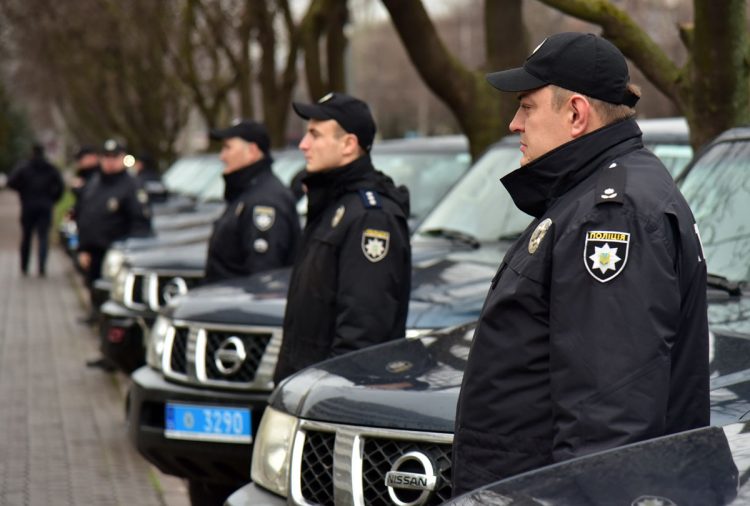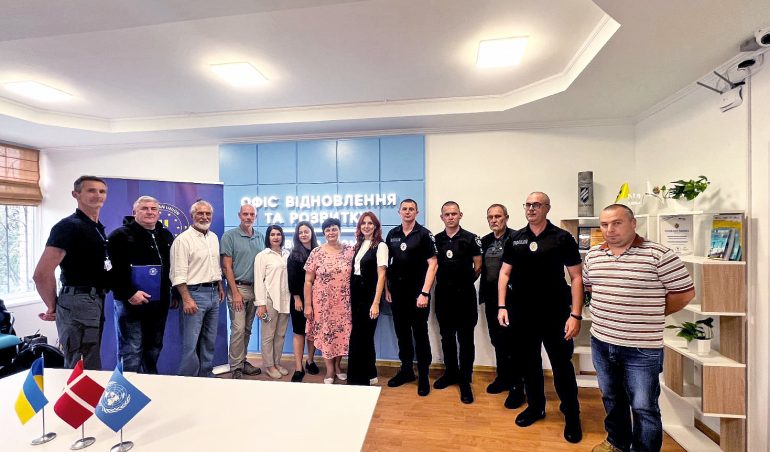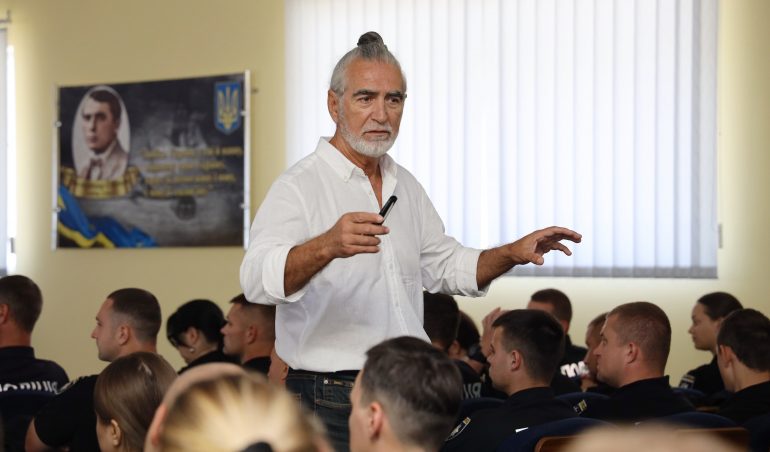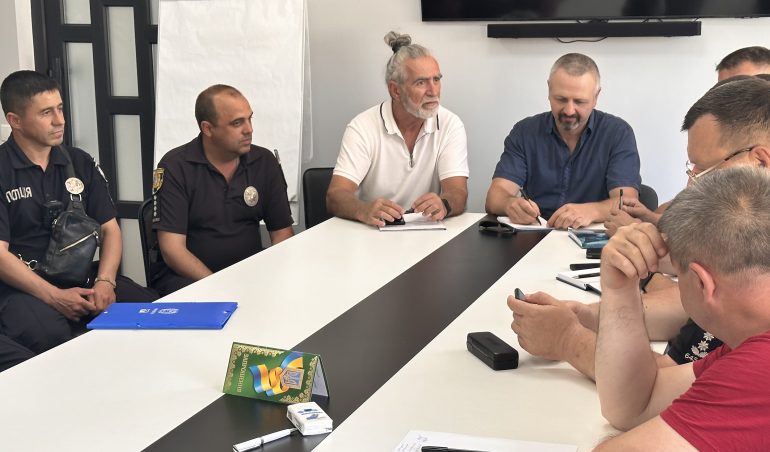EUAM advises police in Donetsk region to develop capacity and resilience – safety of citizens as ultimate goal
January 19, 2022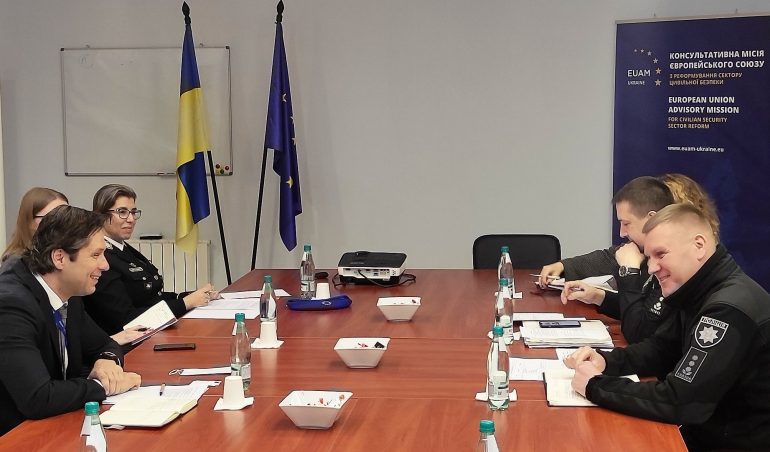
Law enforcement agencies in Eastern Ukraine develop their resilience in order to be able to create a safe living environment for the citizens in which their human rights are protected. The EU Advisory Mission’s (EUAM) Eastern Field Offices support the local National Police units on this quest.
During the last two months alone the EUAM Field Office Mariupol launched a project on Custody Records System, initiated Community Safety Dialogue , kicked-off the community policing curriculum for higher education institutions, and donated twenty cars to the National Police units.
To evaluate first results of this cooperation and outline priorities for 2022, the EUAM Field Office met the recently appointed Head of the National Police in the Donetsk region Ruslan Osypenko.
“Local police forces working along best European standards, developing their resilience toward threats, while safeguarding human rights and the dignity of all citizens,” underlined Martin Kulisek, Head of the EUAM Mariupol Field Office. “This is the overall goal of the cooperation between our EUAM Field Office Mariupol and the National Police of the Donetsk region”.
Modern custody records protect citizens and police alike
A modern Custody Records System is currently prepared for police stations in Donetsk region. It is an integrated information processing system to record all actions relating to detainees while and after the detention. The System ensures the protection of the human rights of detainees, as well as police officers from possible false allegation of unlawful actions. This modern system is implemented by EUAM and EU-funded PRAVO Police programme, implemented by UNOPS.
“The first System in Donetsk region is planned to be launched in Mariupol. Thanks to EUAM assistance, eight more stations equipped with the Custody Records System will be installed by the end of 2022,” Ruslan Osypenko told.
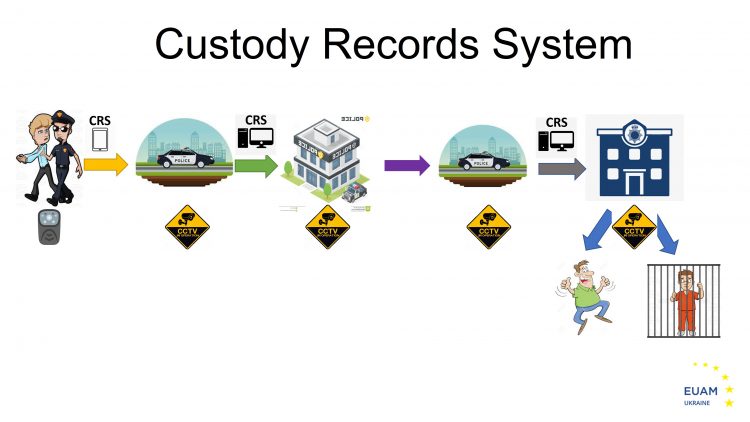
Community Policing: police and community working together to solve local problems
In the meeting, the National Police in Donetsk region and EUAM furthermore agreed to support the Community Safety Dialogue through dedicated working groups where local police and citizens work together supported by experienced EUAM advisors.
“The EUAM Community Safety Dialogues initiative allows law enforcement agencies, the civil society sector, community representatives and international organisations to discuss and find joint solutions for crime prevention, domestic violence and road traffic safety. Such structured dialogue will ultimately lead to increased trust between the law enforcement agencies, local communities and create a sustainable partnership. ” Martin Kulisek added.
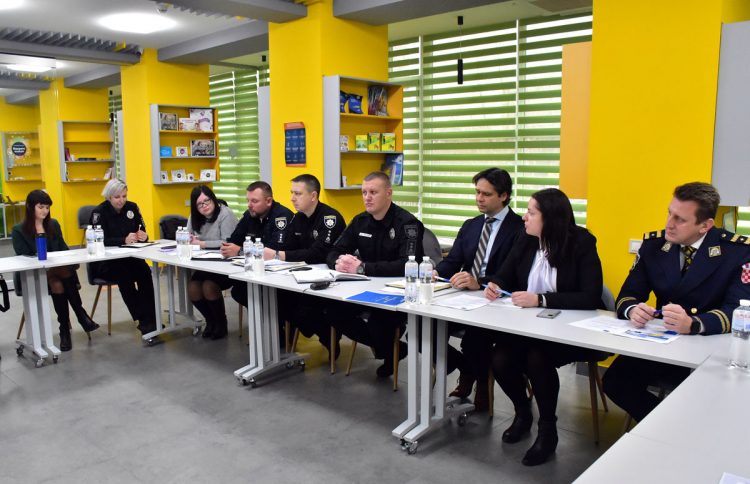
Dedicated training to develop community policing
EUAM and the National Police of Donetsk region will continue their cooperation in developing Community Policing approach. EUAM offered additional training based on a Community Policing Curriculum earlier developed by EUAM and the Canadian Police Mission in Ukraine.
“One of the priorities of EUAM in Mariupol regarding future cooperation with the Main Department of the National Police in the Donetsk Region is to apply the Community Policing curricula for advanced training of police officers in Donetsk Region and contribute to more effective and efficient implementation of the Community Policing in Donetsk Region. Community Policing is an excellent tool to build bridges between the citizens and the police and increase trust between the state and people. Community-based Policing simply means the police and community work together towards finding local solutions for local problems,” commented Carla Costa, Senior EUAM Adviser on General Policing.
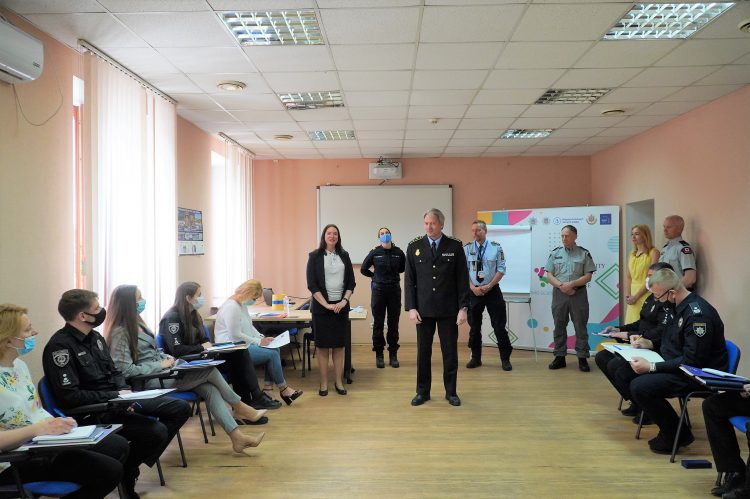
Established in 2014, and working with approximately 370 staff the EU Advisory Mission continues its support to the National Police of Ukraine, including in the Donetsk region, providing technical support and strategic advice on integrating the best European practices in the everyday work of police officers, creating a safer environment in the region.
